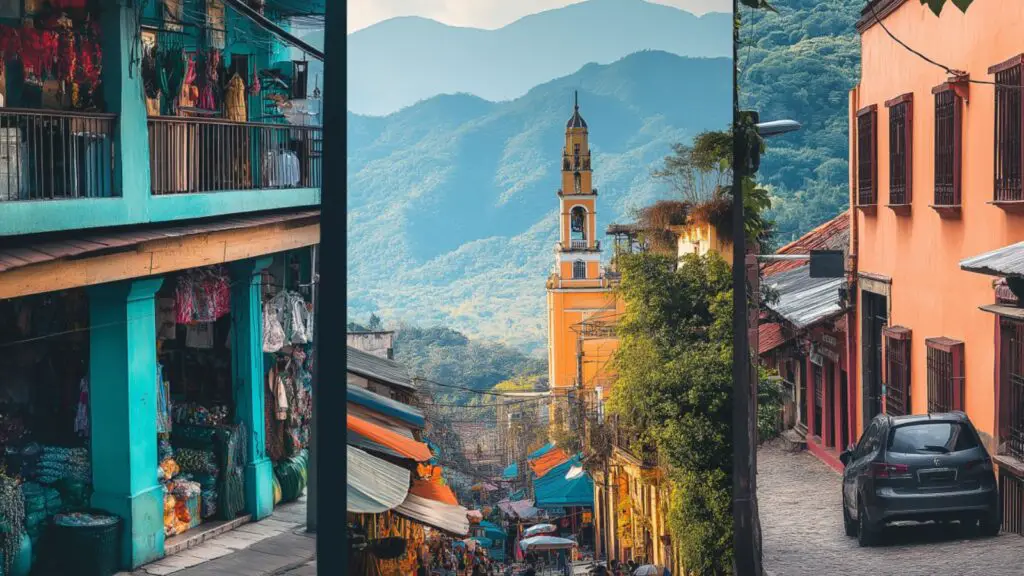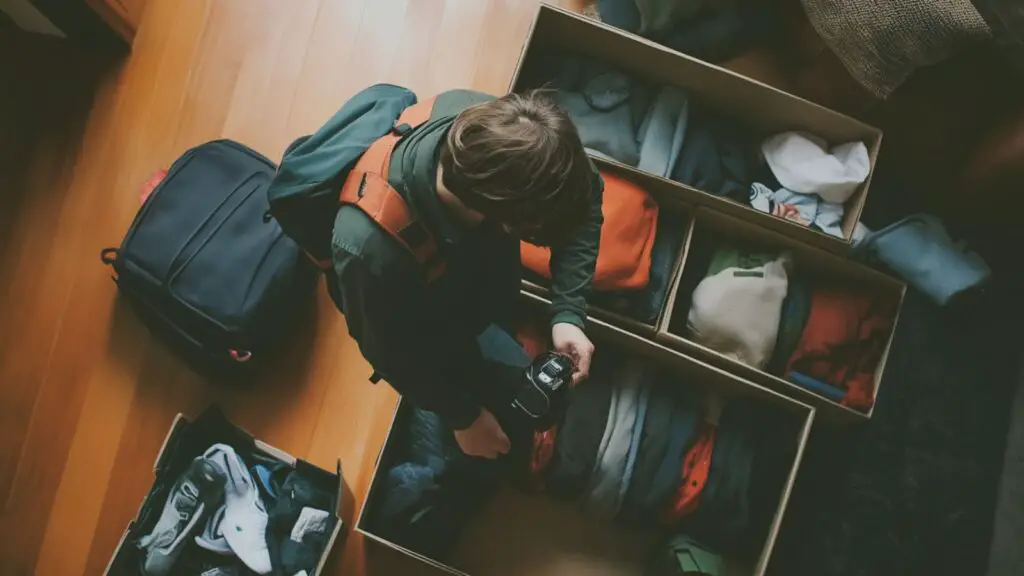How to Travel Full-Time on a Part-Time Budget: 7 Smart Strategies That Actually Work
Table of Contents
Introduction
Is it really possible to travel full-time on a part-time income? With rising costs of living and global inflation, it might seem like a pipe dream—but for thousands of travelers, it’s a reality. Whether you’re working remotely, freelancing, or living on a fixed income, full-time travel can be accessible with the right strategies.
In this post, we’ll explore seven realistic approaches that make full-time travel financially sustainable. These aren’t get-rich-quick hacks or influencer-only secrets—they’re tested, practical methods you can start using today. From house-sitting to budget travel hacks, you’ll learn how to reduce costs, increase flexibility, and stretch your dollars while still enjoying meaningful travel experiences.
In-Depth Outline
1. Embrace Slow Travel to Save Big
- Why staying longer cuts costs on transportation and lodging
- How to negotiate better rates on long-term rentals
- Avoiding tourist traps and peak-season pricing
- Examples of travelers saving 30–50% through slow travel
- Tools for finding long-stay discounts (e.g., Airbnb, local Facebook groups)
Table: Short-Term vs. Long-Term Travel Costs
| Expense | Short-Term (1 week) | Long-Term (1 month+) |
| Accommodation | $500–$1,000 | $600–$900 |
| Transport | $150–$300 | $50–$100 |
| Meals | $200–$300 | $100–$150 |
2. Use House Sitting and Pet Sitting for Free Accommodation

- Trusted platforms: TrustedHousesitters, Nomador, MindMyHouse
- How to build a strong sitter profile
- Responsibilities and expectations as a house sitter
- Real examples of month-long stays in Europe and Australia
- Tips for landing high-quality gigs in popular locations
Table: Top House Sitting Platforms
| Platform | Membership Fee | Coverage | Best For |
| TrustedHousesitters | $129/year | Global | Long-term international stays |
| Nomador | $99/year | Europe & Americas | French-speaking regions |
| MindMyHouse | $20/year | Global | Budget-friendly beginners |
3. Work Remotely or Freelance on the Road

- In-demand remote jobs and freelance niches
- Digital tools for working from anywhere
- Creating a consistent work-travel schedule
- Tips for securing reliable Wi-Fi in different regions
- Platforms to find remote gigs (Upwork, FlexJobs, RemoteOK)
Table: Best Freelance Platforms for Travelers
| Platform | Best For | Pros | Cons |
| Upwork | Beginners & pros | Large client base | Competitive market |
| Fiverr | Creative gigs | Easy setup | Low rates at start |
| FlexJobs | Remote jobs search | Vetted listings | Paid subscription |
4. Prioritize Budget-Friendly Destinations

- Countries with low cost of living (e.g., Thailand, Mexico, Georgia)
- How exchange rates impact your travel budget
- Seasonal travel to off-peak destinations
- Leveraging digital nomad visas
- Safety and infrastructure in budget countries
Table: Popular Low-Cost Countries for Long-Term Travel
| Country | Monthly Budget (USD) | Notable Perks |
| Thailand | $800–$1,200 | Great food, co-working spaces |
| Portugal | $1,200–$1,500 | Mild weather, digital nomad visa |
| Georgia | $700–$1,000 | Free visa, fast Wi-Fi |
5. Use Reward Points and Travel Hacking

- Credit cards with the best sign-up bonuses
- Maximizing points on everyday spending
- How to fly business class for economy prices
- Ethical travel hacking: tips for responsible use
- Tools for tracking rewards (e.g., AwardWallet, Point.me)
Table: Top Travel Rewards Credit Cards
| Card Name | Annual Fee | Best For | Sign-Up Bonus |
| Chase Sapphire Preferred | $95 | Overall travel rewards | 60,000 points after $4,000 spend |
| Capital One Venture | $95 | Flexible points & transfers | 75,000 miles after $4,000 spend |
| Amex Platinum | $695 | Lounge access & luxury perks | 100,000 points after $6,000 spend |
6. Cut Fixed Expenses at Home Before You Go

- Renting out your home or breaking your lease
- Selling your car and switching to public transport
- Canceling subscriptions and consolidating bills
- Storage solutions for long-term travelers
- How to budget realistically before departure
Table: Sample Expense Reduction Plan (Monthly Savings)
| Item | Pre-Travel Cost | Post-Travel Savings |
| Rent/Mortgage | $1,200 | $0 (rented out) |
| Car Loan & Insurance | $600 | $0 (sold car) |
| Subscriptions/Services | $200 | $50 (essentials only) |
7. Volunteer or Exchange Skills for Room and Board

- Workaway, Worldpackers, and WWOOF explained
- What to expect: hours, duties, cultural exchange
- How to choose ethical, well-reviewed hosts
- Skills that are in demand: gardening, hostel work, teaching
- Pros and cons of work exchanges vs. paid jobs
Table: Popular Skill Exchange Platforms
| Platform | Focus Area | Membership Fee | Typical Work Hours |
| Workaway | General travel & culture | $49/year | 20–25 per week |
| Worldpackers | Hospitality & community | $49/year | 15–25 per week |
| WWOOF | Organic farming | Varies by country | 20–30 per week |
Content Expansion
1. Embrace Slow Travel to Save Big
Fast travel is often the most expensive way to explore the world. Constant transportation costs, hotel stays, and dining out can drain your budget quickly. Slow travel, on the other hand, not only saves you money but also deepens your connection with the places you visit.
By staying in one location for several weeks or even months, you can negotiate discounts on accommodation. Platforms like Airbnb offer significant price reductions for long-term stays—some hosts offer 30–50% off for monthly bookings. Local Facebook groups and expat forums can help you find under-the-radar rentals that aren’t listed on big platforms.
Slowing down also reduces transport expenses. Instead of flying or taking trains every few days, you’ll spend more time walking, biking, or using local public transport. You also get the advantage of shopping at local markets and cooking meals, instead of relying on costly restaurants.
Here’s how the savings can add up:
Short-Term vs. Long-Term Travel Costs
| Expense | Short-Term (1 week) | Long-Term (1 month+) |
| Accommodation | $500–$1,000 | $600–$900 |
| Transport | $150–$300 | $50–$100 |
| Meals | $200–$300 | $100–$150 |
Traveling slowly gives you time to explore beyond tourist zones, enjoy a better quality of life, and save hundreds—if not thousands—each month.
2. Use House Sitting and Pet Sitting for Free Accommodation
One of the most effective ways to eliminate your largest travel expense—accommodation—is by house sitting. Travelers who consistently use house sitting services often report living rent-free for months at a time, staying in fully equipped homes while caring for pets.
Websites like TrustedHousesitters, Nomador, and MindMyHouse connect homeowners with responsible travelers. Most require a modest annual fee, but the savings in lodging easily outweigh the costs. For example, a month in a Paris apartment could easily cost $1,500 or more—but as a house sitter, you stay for free.
To get started, create a professional profile with references and a clear description of your experience and reliability. Highlight any pet-care or home-maintenance skills. Begin with local or short-term sits to build your credibility, then apply for more competitive assignments abroad.
Top House Sitting Platforms
| Platform | Membership Fee | Coverage | Best For |
| TrustedHousesitters | $129/year | Global | Long-term international stays |
| Nomador | $99/year | Europe & Americas | French-speaking regions |
| MindMyHouse | $20/year | Global | Budget-friendly beginners |
Aside from financial savings, house sitting offers unique experiences—like living in a Tuscan villa or a remote cottage in New Zealand. It’s a perfect strategy for travelers who prefer comfort and connection over crowded hostels or tourist hotels.
Conclusion
Traveling full-time doesn’t have to mean spending full-time money. With intentional choices and strategic planning, a part-time budget can unlock a lifetime of adventure. From cutting fixed expenses to embracing slow travel and house sitting, the key is to prioritize flexibility, research, and resourcefulness. The seven strategies above prove that a globe-trotting lifestyle is not just for the wealthy or the retired—it’s within reach for anyone willing to plan smart and travel thoughtfully.


